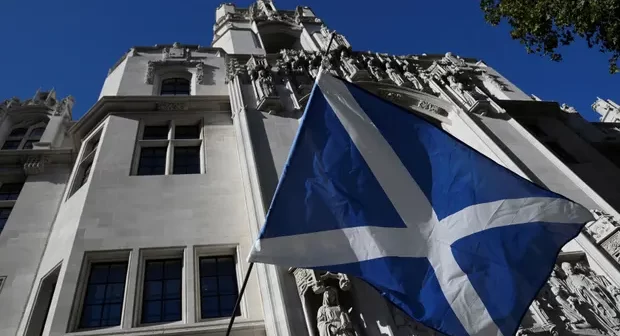The Scottish parliament cannot hold a second independence referendum without Westminster approval, the supreme court has ruled, in a judgment likely to anger Scottish nationalists who say the country’s future is for Scottish voters to decide.
The decision could lead to Nicola Sturgeon following through on her pledge to “put our case for independence to the people in an election”, turning it into a “de facto referendum”.
The ruling, delivered by the supreme court president, Lord Reed, came after an unprecedented hearing at the UK’s highest court into whether Holyrood had the legal authority to legislate for a referendum on Scottish independence without Westminster granting it the required powers.
She has challenged the UK government’s consistent refusal to grant her a section 30 order, the section of the 1998 Scotland Act – the legislation that established the Scottish parliament – that allows Holyrood to pass laws in areas that are normally reserved to Westminster, such as the union.
The UK government had argued that a referendum bill exceeded Holyrood’s powers.
Sir James Eadie KC, a senior lawyer acting for the UK government, pointed out that Bain had refused to certify the draft bill as legally competent earlier this year because she “did not have the necessary degree of confidence” it was lawful.
The proposed legislation was “solely and squarely about the union”, Eadie said, and thus in breach of the Scotland Act’s bar against passing legislation that dealt with the UK’s constitution.
Sturgeon, who has built her case for staging a second referendum on Scotland’s democratic right to self-determination, has said previously that a rejection of her argument would leave her no alternative but to “put our case for independence to the people in an election”.
She characterised this as a “de facto referendum” but significant questions arise about how this would operate in practice.
Source: The Guardian

